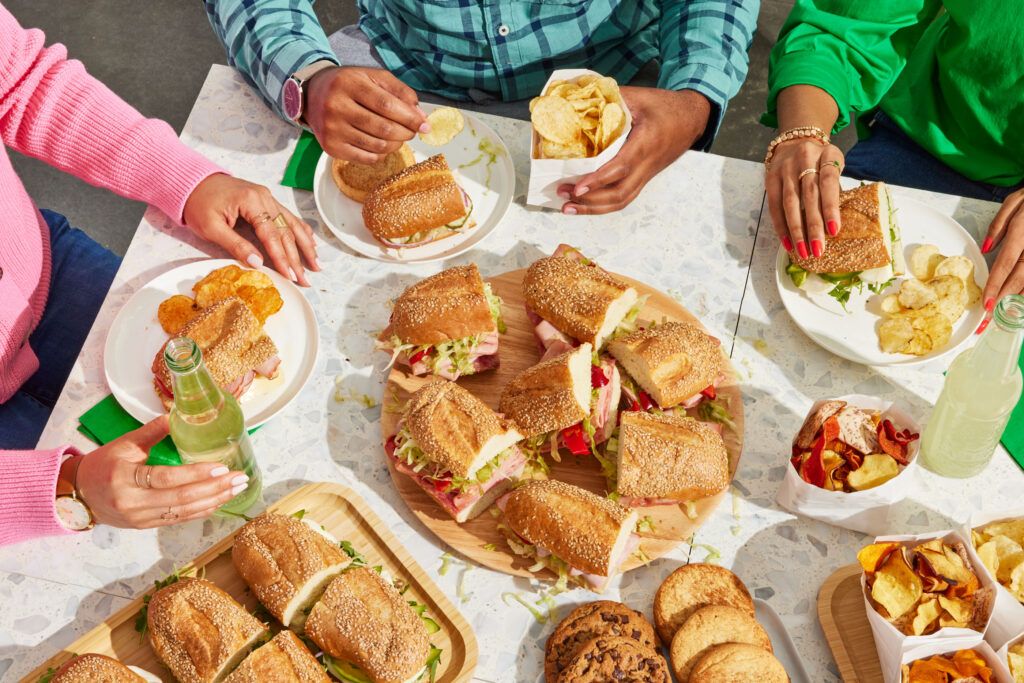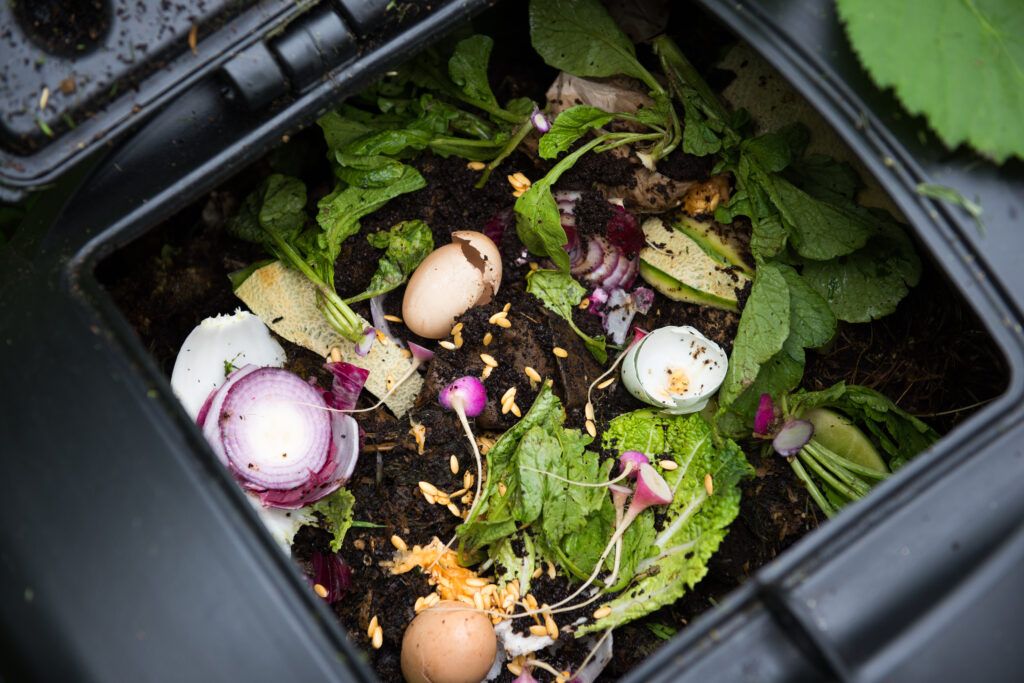Up to 40% of the food supply is wasted in the United States, according to the USDA, and workplace kitchens are no exception. In an effort to lower this number, more and more businesses are looking for ways to reduce food waste.
Eliminating food waste does more than just clean out the break room fridge. Billions of pounds of wasted food contribute to the 18% of total U.S. methane emissions that landfills represent. Controlling company waste means you’ll do your part to decrease these emissions.
Besides being environmentally friendly, food waste management helps you save on employer-provided meals. Plus, you can give back to your community while you’re at it.
How to reduce food waste at work
Food waste reduction is simple in theory, but how do you put it into practice? With a little planning and dedication, you can reduce your company’s carbon footprint. Here are some easy ways your team can minimize waste in the office.
Raise awareness

The first step in food waste management is to get educated about the issue — and then spread awareness. Make sure your team understands the magnitude of excessive food waste, as well as the effects it can have on the environment and local communities.
You could hold a lunch and learn to help educate employees about food waste at work and include environmentally-friendly lunch options like compostable packaging and individually-packaged meals so you only order for the attendees who’ve signed up.
Simply raising awareness can lead to powerful changes in behavior. Employees who know how damaging food waste is are more likely to take conscious steps toward reducing their own food waste, at home as well as at work.
With your team’s knowledge strengthened, you can start making a plan to attack the issue in the office. By making all employees part of the process, you’ll create a food-reduction strategy that’s both effective and long-lasting.
Avoid over-purchasing

One of the best ways to reduce food waste at work is to prevent it in the first place by learning how much food to order per person. But when you’re ordering in for your team, this is easier said than done.
To ensure there’s enough for everyone, it’s standard practice to purchase more than you’ll need. Unfortunately for companies that regularly provide meals for their team, over-purchasing leads to an excess of scraps.
One way that many organizations are avoiding over-ordering is to by opting for individually-packaged meals instead of tray catering. You can do this by enacting a strict headcount policy or by using a recurring meal delivery program like Relish by ezCater that lets employees and/or attendees choose their own meal.
Choosing individually-packaged meals helps to prevent over-ordering and the unwanted food that often occurs when you don’t have an exact headcount.

Separate your trash

Just as recyclable materials should be separated from landfill fodder, so should food waste. Discarding food scraps separately means they can be disposed of properly, helping reduce the extra methane in the atmosphere.
Food scrap receptacles make trash separation easy. Simply add one to your employee kitchen and use it to store all compostable discards, then dispose of them all at once. Many cities provide pickup services on request, just as they do for recyclables.
Make sure your whole team understands what should be tossed in these receptacles versus the trash. Consider posting helpful guidelines by your waste station to ensure food waste isn’t landing in the wrong bin.
Consider composting

Take trash separation one step further by composting your food waste. The growth of composting pickup services means businesses can now convert their scraps into nutrient-rich soil. Simply separate your food waste and join a composting project, or take a DIY approach if your business has an outdoor space.
If your company shares a cafeteria with others, consider asking the neighboring businesses to add their scraps to your compost bin and reduce food waste even further. This is also a good way to include remote employees in your efforts — encourage them to start composting at home and do their part to reduce waste.
Partner with a food redistributor

Some leftovers are unavoidable. And while designated receptacles can keep scraps out of landfills, they don’t do much to keep edible food from becoming scraps. Opting for a food waste recycling program gets food where it’s needed most: into mouths.
Food reclamation companies like Replate have sprung up across the country, working to reduce waste while alleviating food insecurity in local communities. When you’re faced with excessive leftovers, simply schedule a pickup. A Replate team member will arrive to transport the food to people who need it. When you donate leftover foods, you’ll feed the hungry and clear your fridge, all without touching your trash can — it’s a win-win-win situation.
Don’t stop at food waste

Reducing food waste is a great starting place when it comes to lessening your workplace’s environmental impact, but the work doesn’t need to end there. Consider what your employees are eating their food with. Chances are, they’re using single-use plastic.
Disposable utensils are convenient, sure, but convenience often comes with a catch. For starters, plastic utensils aren’t easily recyclable, increasing the chance they’ll end up in a landfill. But your employees don’t have to go fork-free to make a difference. You can limit the impact by providing real silverware they can use at the office, forks, knives, spoons (and maybe sporks!) that can be cleaned and reused again and again.
To do our part and help limit waste, ezCater doesn’t automatically include utensils in orders. Instead, we let our customers opt-in and tell us exactly what utensils they need — based on their headcount — and we let the restaurants know whether or not to include utensils with each order.








